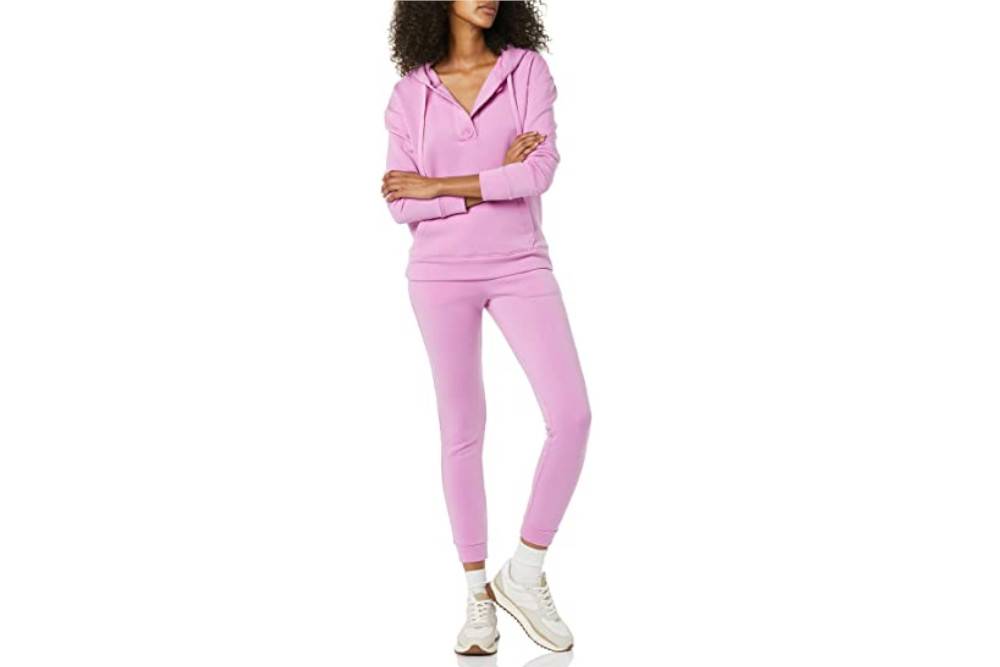
Amazon is an American retailer founded in 1994 in Washington, United States, by Jeff Bezos. The multinational retail company also creates fashion products for men, women, and children.
Amazon Consumer Private Brands make clothing, accessories, shoes, eyewear, watches, beauty, jewelry, and perfumes. They have suppliers located around the world and also sell third-party products directly to customers on Amazon.com.
Amazon is one of the biggest companies in the world. It operates more than 580 physical stores in the United States alone and has more than 1,500,000 employees in stores, factories, logistics, brands, and subsidiaries around the world.
Amazon is investing in efforts to protect the environments of the people and communities it serves. It believes operating sustainably is no longer a choice but an imperative. And it takes action to address climate change.
Amazon offers a collection of sustainable products made from organic or recycled materials called Climate Pledge Friendly. It wants to make it easier for customers to discover and shop for sustainable products.
Panaprium is independent and reader supported. If you buy something through our link, we may earn a commission. If you can, please support us on a monthly basis. It takes less than a minute to set up, and you will be making a big impact every single month. Thank you!
Sustainability Rating: 4/10
Rating FAQ
Category: Clothing, accessories, shoes, bags, jewelry
For: Women, men, children
Type: Basics, dresses, denim, knitwear, activewear, underwear, loungewear, swimwear, outerwear, nightwear, boots, flats, sneakers, sandals, heels
Style: Casual
Quality: Low
Prices: $
Sizes: 2XS-4XL, 0-20 (US), 2-22 (UK), 32-58 (EU), 4-22 (AU), plus
Fabrics: Cotton, linen, jute, lyocell, modal, viscose, acetate, polyester, nylon, spandex, polyethylene, polypropylene, acrylic, neoprene, polyurethane, rubber, leather, wool, silk
100% Organic: No
100% Vegan: No
Ethical & Fair: No
Recycling: Yes
Producing countries: not transparent enough
Certifications: GOTS, GRS, FSC, BCI, SEDEX
Sustainability Practices
Amazon takes wide-ranging measures to protect biodiversity, reduce its consumption of water, energy, and other resources, avoid waste, and combat climate change.
It wants to be better and more efficient by looking at every aspect of its value chain to ensure the healthy functioning of our planet. However, the majority of its business remains detrimental to the environment.
Amazon only uses a tiny proportion of organic materials such as organic cotton or recycled materials such as recycled polyester and regenerated nylon.
Only very few of its collections are dedicated to sustainable fashion. Most of the fabrics it uses are either natural without relevant certifications, such as regular cotton or linen, or synthetic petroleum-based fibers such as polyester, nylon, acrylic, and more.
Amazon also uses a small proportion of semi-synthetic fibers or regenerated cellulosic fabrics such as Tencel lyocell, modal, acetate, and viscose.
Tencel is an eco-friendly fiber made with wood pulp from certified sustainable forests. But only a tiny proportion of the materials used by Amazon are environmentally friendly and sustainable.
Amazon doesn't publish a list of all its manufacturers and processing facilities on its corporate website. It has committed to working with
suppliers that respect human rights and the environment in their operations and supply chain.
The 2022 Fashion Transparency Index gave Amazon a score of only 31% based on how much the group discloses about its social and environmental policies, practices, and impacts.
Amazon manufactures its clothes in many East Asian countries, where human rights and labor law violations happen every day.
The American retailer doesn't show any labor certification standard that would ensure good working conditions, decent living wages, health, safety, and other crucial rights for workers in its supply chain.
Amazon has a code of conduct that applies to all its suppliers and subcontractors based on the regulations set by the International Labor Organization (ILO).
Amazon assesses compliance with its Code of Conduct through its internal surveillance audits or third-party audits with or without notice. It has Supply Chain Standards and organizes confidential worker interviews in the audit process.
Amazon doesn't use exotic animal skin, hair, fur, or angora. But it uses leather, wool, and silk to manufacture many of its products.
These animal-derived materials are cruel and unethical. They also harm the environment by producing greenhouse gases and waste. More sustainable alternatives exist.
Sustainability Goals
Amazon has committed to reducing its environmental impact across the entire supply chain. It co-founded The Climate Pledge in 2019 and continues to address climate change.
Amazon plans to achieve net-zero emissions in 2040. It aims to power its operations with 100% renewable energy by 2025. And it will make 50% of its shipments net-zero carbon by 2030.
Amazon increases the use of recycled fabrics and launches products made from innovative recycled fibers. It strives to make products from more sustainable sources.
Buy Here
Discover Amazon's sustainable collections at Amazon.com.
Reviews And Experiences With Amazon
Have you had (good) experiences with shopping at or the products of Amazon? Then leave us your rating below.
What We're Up Against
Multinational corporations overproducing cheap products in the poorest countries.
Huge factories with sweatshop-like conditions underpaying workers.
Media conglomerates promoting unethical, unsustainable products.
Bad actors encouraging overconsumption through oblivious behavior.
- - - -
Thankfully, we've got our supporters, including you.
Panaprium is funded by readers like you who want to join us in our mission to make the world entirely sustainable.
If you can, please support us on a monthly basis. It takes less than a minute to set up, and you will be making a big impact every single month. Thank you.






























0 comments